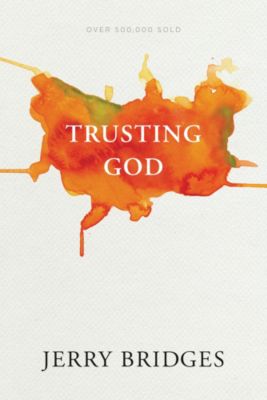
By Paul Petersen
Who do you picture in American churches demonstrating the strongest trust in God? Consider the apostle Peter’s teaching that a tested faith reveals genuine faith (1 Peter 1:6-7). Who in our society feels the greatest need to exercise their trust in God?
While the 2019 Discipleship Pathway Assessment found that many American churchgoers choose to trust, rather than doubt, God during difficult times (72%), the groups which compose that percentage are convicting. The survey evaluated the discipleship signpost of “exercising faith” during difficult circumstances, with finances, and toward God’s activity in non-Christians. In every category, Hispanics and African American protestant churchgoers led the charge of a rich trust in God.
Fifty-five percent of both groups indicated they strongly resist the temptation to doubt God’s love and provision during difficult circumstances. Thirty-one percent of white and other ethnicities said they make everything they own available to God, contrasted with 46% of African American protestants and 50% of Hispanic protestants.
Additionally, churchgoers with a high school diploma or less were more likely to view their possessions as available to God than those with higher levels of education. Finally, 60% of African Americans strongly believe God can change the lives of non-Christians, the highest percentage of any ethnicity.
A great danger for any American Christian is the idea that we can lessen the risk of difficulty in our lives by amassing wealth and achieving success. Click To TweetOur society historically ascribes less value and opportunity to these groups. The purpose of this article is not to remedy that situation but to point out that their reality has forged a robust and genuine faith through fire. A great danger for any American Christian is the idea that we can lessen the risk of difficulty in our lives by amassing wealth and achieving success.
We can trust God, but our prosperity and position might produce the most significant risk to an even richer and deeper trust in God.
You Are What You Achieve?
Ever since humanity’s fall in Genesis 3, we entertain the idea that what you have and what you do, create who you are. The serpent tempted the first humans with an idea: “How can you be complete if God says you can’t have the fruit of this tree?”
As a result of their betrayal, Adam and Eve’s actions redefined their identity. Created in God’s image with no lack of provision in the garden, they chose not to receive their identity from God, but to define their existence on their own terms. You must create what you are by what you do and express your significance in what you have.
While several means and methods exist to create an identity apart from God, wealth has served as an easy indicator of status throughout history. Even in Jesus’ time, wealth attested to worth. A rich young man once asked Jesus, “What must I do to inherit eternal life?” (Luke 18:18). The man’s seeming adherence to the law and abundance of possessions led him to think he could achieve eternal life when Jesus had just taught that you must receive it (Luke 18:17).
Jesus pinpointed the problem by instructing the man to “Sell all that you have and give the money to the poor, and you will have treasure in heaven. Then come, follow me” (Luke 18:22). The man leaves the encounter dejected because he realizes that to receive the ultimate life would cost him his achieved life.
In a consumer- and media-driven world, little prevents churchgoers from inheriting the values of the world before they learn the values of the kingdom. Click To TweetAmericans today face the same challenge. Culture teaches that you can attain any identity or experience if you work hard enough. In a consumer- and media-driven world, little prevents churchgoers from inheriting the values of our world before they learn the values of the kingdom.
Thus, rather than live as an interdependent community that exists to serve and meet the needs of one another, when calamity happens, we take out a loan. When we experience loss, we medicate our pain with possessions and pleasures. When our community suffers a loss, we send gifts, thoughts, even prayers—but not our presence. Our time is far too valuable.
You Are What You Receive.
Many Christians—including me—fail to realize both what we are in Christ and what we possess in Him. To use Peter’s analogy, consider that someone gives you a rock the size of a bowling ball. It has a rough, unseemly appearance, but they tell you it possesses incredible value. To test that claim, you’d have to purify the rock and reveal its hidden content. If, however, you tuck the stone away in a dark closet and continue striving day after day to produce a paycheck, you will never know that a life-altering treasure is in your possession.
I confess that I treat my faith the same way. In Christ, we’re born into God’s family as beloved children, heirs to an “inheritance that is imperishable, undefiled, and unfading, kept in heaven for you.” When difficulties and financial hardship (or abundance) inevitably come, I treat them as obstacles to the life I think I want, not God’s method for revealing to me the life I’ve received in Christ.
Peter teaches us that God sends trials “so that the tested genuineness of your faith—more precious than gold that perishes though it is tested by fire—may be found to result in praise and glory and honor at the revelation of Jesus Christ” (1 Peter 1:7). To Peter, the object of a Christian’s faith is far more valuable than gold.
"If everything seems to come simply by signing checks, you may forget that you are at every moment totally dependent on God.” — @CSLewis Click To TweetIf we can achieve the life we desire through our efforts, achievements, and wealth, God may appear increasingly irrelevant. In Mere Christianity, C.S. Lewis claimed, “One of the dangers of having a lot of money is that you may be quite satisfied with the kinds of happiness money can give, and so fail to realize your need for God. If everything seems to come simply by signing checks, you may forget that you are at every moment totally dependent on God.” We must learn from Peter’s perspective. We test things of value so that we know they are valuable.
God desires every Christian to experience how valuable He is, so He sends trials and opportunities that allow us to act on the faith we’ve inherited. As we exercise the faith we possess, we discover the treasure we’ve received in Christ, freeing us to sacrificially love, serve, and witness to those around us. We realize our prosperity and position are nothing compared with knowing Jesus more.

Paul Petersen
Paul serves college students in Boulder Colorado with The Navigators and alongside his wife Aimee and two daughters. He is also pursuing a ThM at Dallas Theological Seminary.








